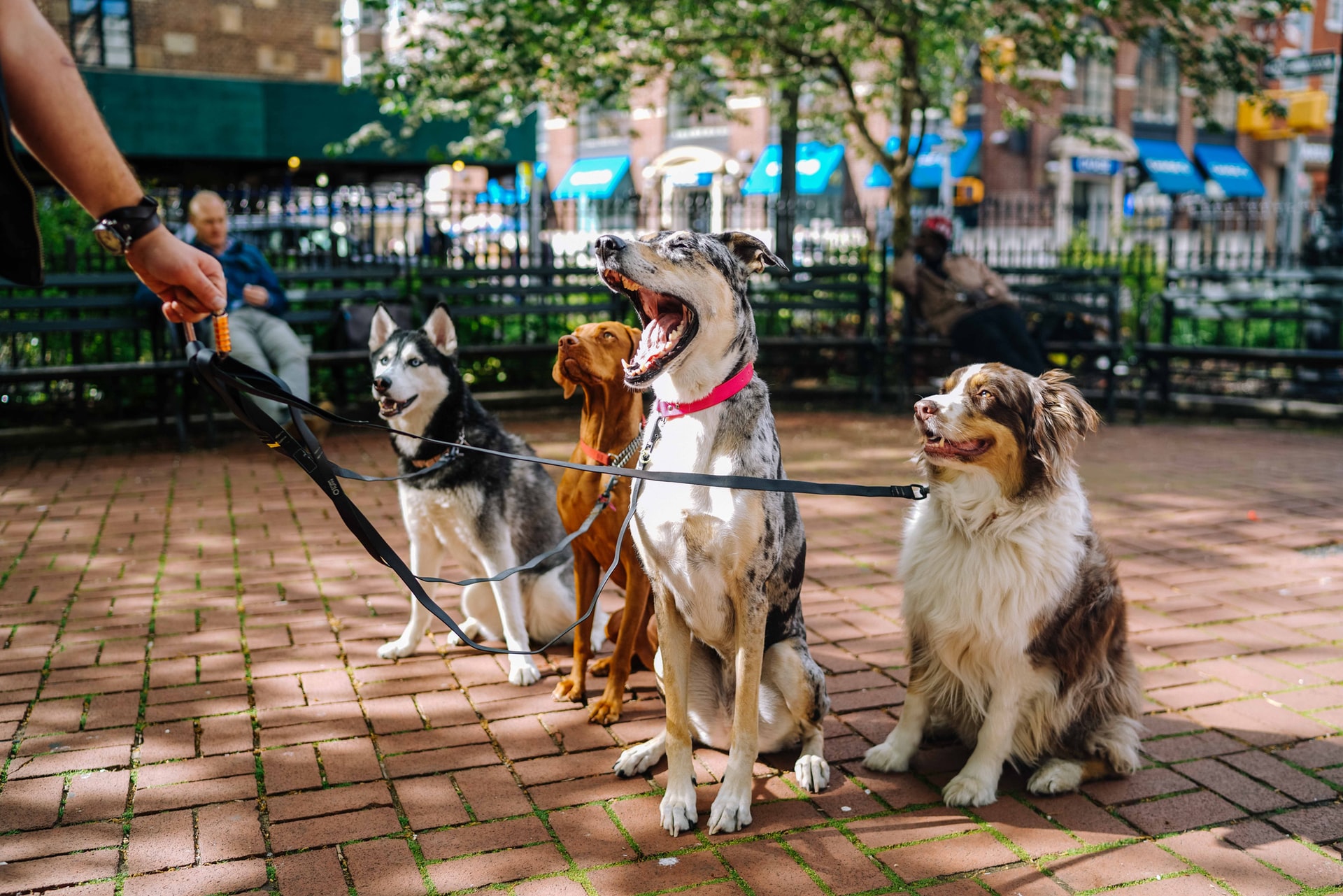Over thousands of years of domestication and evolution, an enormous variety of dog breeds have come into existence. The British Kennel Club currently recognises 218 distinct breeds, while the American Kennel Club recognises a similar but slightly smaller number. The Kennel Club divides these into Gundog, Hound, Pastoral, Terrier, Toy, Utility, and Working groups based on how they were intended to be used and key characteristics. Guard and protection dogs can be drawn from across these groups, and may also be from a range of different breeds. These include “classic” guardians such as the Rottweiler and Malinois, as well as surprises such as the Chihuahua, Jack Russell Terrier, and Pomeranian. However, Protection Dogs Worldwide has identified four core breeds most suitable for family protection work: the German Shepherd Dog, Cane Corso, Giant Schnauzer, and Doberman Pinscher.
These four breeds are the result of years of experience in family-oriented dog training and dealing. While not necessarily scientifically chosen, our experiences with these breeds, and others, has demonstrated that they tend to be most suitable for family protection work. We are often also asked why we do not supply breeds such as the Belgian Malinois, Rottweilers, Boxers, American Bulldogs, and Staffordshire Bull Terriers. The Belgian Malinois is too aggressive and energetic to assimilate into family environments, while Rottweilers are too dominant. For the most part, Boxers have had their working abilities and protective instincts bred out of them in favour of friendliness and playfulness, while American Bulldogs can be unpredictable. While Staffordshire Bull Terriers are famously loyal, they also have a remarkable ability to make friends with strangers, and are too small to deter most would-be attackers. The Chihuahua, Jack Russell Terrier, and Pomeranian are all valuable, but primarily because of their bark’s ability to deter. Otherwise, they are too small to actually effectively protect.
In contrast to this, our four breeds have been proven to combine trainability, affection, and protective instincts in a manner which has proven manageable for hundreds of our clients since we were founded. For example, the German Shepherd Dog was originally bred to herd and protect livestock in the borderlands of France and Germany around the Alsace region. This required high levels of intelligence and obedience when working through a handler, which along with their formidable protective nature has made them natural candidates for a variety of police, military, and service tasks. What makes the German Shepherd Dog so suitable for families, though, is their singular ability to bond for life. German Shepherd Dogs are often informally classified as “Velcro dogs” by virtue of their affectionate nature, and are famously good with children. Their high levels of intelligence must be constantly engaged, but this often manifests as enjoying obedience training, which is integral to building a bond between dog and handler.
Cane Corsos are rarer in the UK, but are an excellent breed of family protection dog. A Mastiff-type breed of Italian origin, Corsos particularly like being close to their owners, but have strong defensive instincts. They are also more intelligent and athletic than the majority of Mastiff-type breeds allowing them higher levels of stamina and trainability. Given their size and power, Cane Corsos are an outstanding deterrent against would-be intruders and attackers, but are equally affectionate with their own family.
Doberman Pinschers are more of a classic family protection breed, but also a very misunderstood one. Doberman Pinschers are athletic and intelligent people-pleasers with a surprising goofy and playful streak. Although they are excellent defenders and protectors, Dobermans love playtime. Their endless potential for play makes them excellent companions for children, but their switch into defensive drive can be instantaneous. A Doberman’s reputation alone makes them excellent at what they do, and they have proven to be one of our most popular dog breeds.
The Giant Schnauzer may also raise an eyebrow. Like the Cane Corso, it is relatively rare in the UK, and even less commonly viewed as an effective protection dog. However, given its initial development as an all-purpose farm dog in Germany, we felt that Giant Schnauzers had good potential to become effective family protection dogs, so took the breed on as a kind of special project. We were pleasantly surprised. Giant Schnauzers proved very receptive to our initial obedience training processes, had strong protective drives, and were able to bond with prospective “families” in simulated scenarios. Giant Schnauzers made excellent family protection dogs, and we are excited by the prospect of working with them more in the future.
Although we will occasionally work with dogs from other breeds (we were recently able to train a Malinois to the standard required for it to integrate into the right family home), we have found that the big four described above best and most easily meet our needs. If you think that you may be interested in purchasing a family protection dog, please do not hesitate to get in touch with us. You would be more than welcome to visit our kennels in the North East of England, and even meet our dogs yourself.

